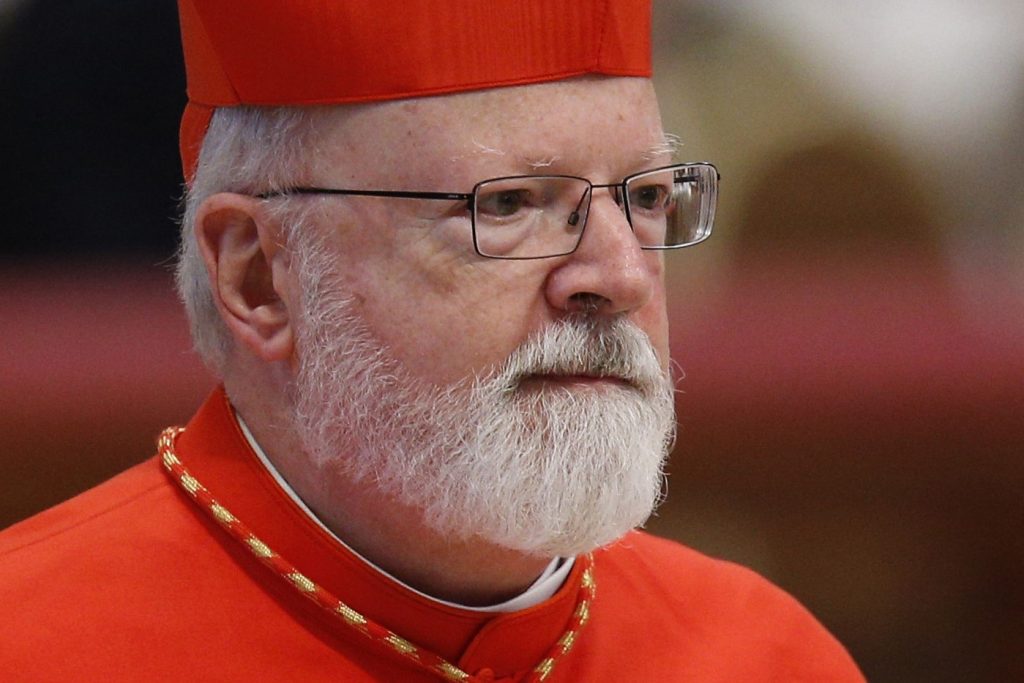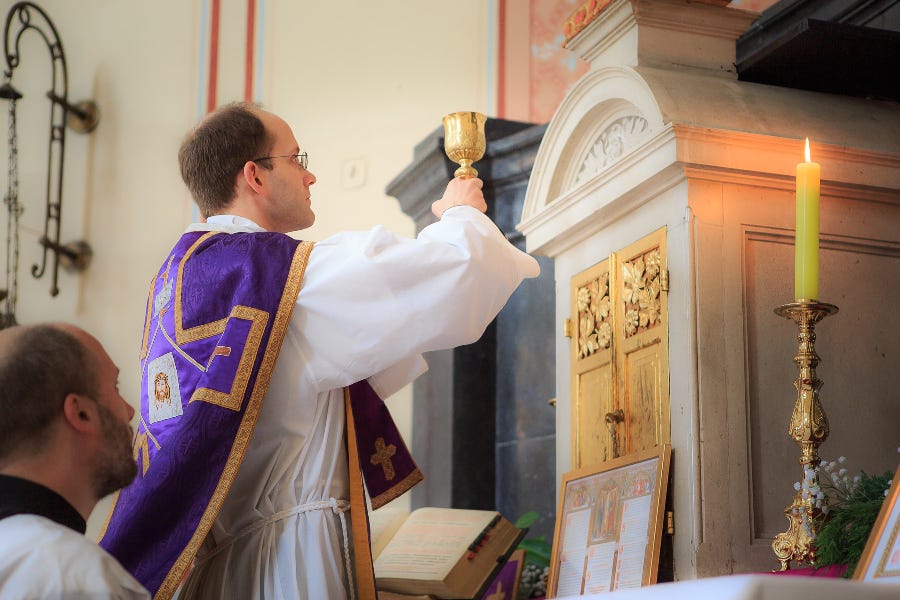By FR. KEVIN M. CUSICK
Conversation in the Church is often unchaste today. Our words are for praise and love of the Father. Unchaste speech contradicts and betrays this upright orientation.
We find ourselves discussing things openly, perhaps in front of children, that should not be discussed at all. Except in private or, as necessary, in the confessional.
The public conversation is often in the gutter. Lately the Pope has himself engaged in unworthy and unedifying speech. “A fish rots from the head down.”
Francis has twice uttered a slur in regard to persons who engage in, or experience a tendency to delectate upon, unnatural sexual relations. The second offense occurred after apologizing for the first infraction!
The current unhealthy and distracting obsession with matters of the bedroom, or more properly the confessional, cannot be corrected without the good example of the father of the family. We call Francis “Pope” because, as the word implies, we must follow him as our spiritual father whom we trust to help lead us to the Heavenly Father. It was good that he apologized but now he, unfortunately, appears insincere after the second verbal misstep.
At the inception of his pontificate, he appointed a notoriously corrupt cleric to run Santa Marta and Vatican financial matters. The escapades of the man in question while on diplomatic assignment in South America are matters of public record. They involve, among other things, getting stuck in an elevator with a “companion” for pay. It is sufficient to say the curriculum vitae in question is sordid.
When the appointment and the man’s past both became known, Francis was challenged on the presence of this corrupt cleric among his closest aides and he responded with the now infamous reply, “Who am I to judge?”
Upon reflection it is obvious that Pope Francis did indeed exercise judgment in that case: a positive one. He chose to give a privileged and sensitive position, of concern to the Church at large given the proximity it affords to his person and affairs, to a man who may be black-mailable. This while, as Pope, Francis is fully capable of filling the post with an honest cleric of moral integrity, there being no shortage of such. He chose not to do so. Why?
Then we witnessed the synods in which Pope Francis’ personal picks to represent him attempted repeatedly to slip approval of same-sex relations into documents on marriage and the family.
Then came Fiducia Supplicans to give the approval of sodomy inherent in conferring a blessing by a priest or deacon upon demand for two men or two women who present themselves as a “couple.”
It should be more than obvious at this point that there is an agenda to undermine Church moral teaching.
Now the Pope in several public speeches has brought up the issue again, but this time by insulting the individuals for whom he once posed as champion. And, as if to make the point, repeated the slur a second time after apologizing for it.
Apologies usually imply an intention to never again commit the infraction at issue. Why didn’t that happen here?
What’s going on? If the Pope is not mentally unfit for his office there has to be some purpose or strategy behind his behavior.
Some who know him behind the scenes have made it public that the Pope, at least when angry, can be quite a potty-mouth.
But the Pope should not be indulging in anger any more than any of us should be. That’s implied in the title “Holy Father.”
As well, the Scriptures and Church teaching agree that our speech should be morally upright and clean of impurities if our souls are to be.
Ephesians 4:29 famously teaches, “Let no evil talk come out of your mouths, but only such as is good for edifying, as fits the occasion, that it may impart grace to those who hear.”
The Roman maxim “mens sana in corpore sano” could be said to imply that our mental choices which dictate our speech and actions should be in keeping with cleanliness of intellect and will. Not for nothing did some of our mothers wash our mouths out with soap when we were caught imitating the foul language of our elders.
It has been said by many souls wiser than me that the problem for the Church is when it is indistinguishable from the world. In matters of speech this fact is all too frequently indisputable.
Our speech should be as different from the world as our lives. Our speech involves our lives: It is an action along with all of our bodily expressions.
Our lives as Christians must be above reproach. But not for appearances and not for the sake of gaining the world’s praise or approval. We seek to glorify and praise the Father with our lives.
Unchaste speech can either reflect immoral living or lead to it. Unchaste speech can be used, or interpreted as, approval for immorality. Unchaste speech can be an occasion of sin for some who are in a weakened condition through personal habituation to sin.
We have a duty and a responsibility to build up our brothers and sisters in faith. There is no faith without morals. Chastity or celibacy for those who are not one man and one woman in holy matrimony is a non-negotiable moral teaching for the Christian Faith. How we live must always reflect how we believe.
Our Lord taught, “Not everyone who says, ‘Lord, Lord’ will enter the Kingdom of God. But only those who do the will of my Heavenly Father.”
Faith is in the doing and in the believing. Our actions must reflect our creed.
Perhaps sadly something other than Faith has become of prior concern. Or Faith for some powerful men has become intertwined with and at times indistinguishable from power.
Some with long experience of Pope Francis say he is sick with power. His unpredictability and contradictory words and actions can certainly serve to keep observers off balance. One way of preserving power is to become so inscrutable as to prevent any one person from serving as a reliable spokesman or key to understanding our dear leader.
Power can also be built up and preserved by surrounding oneself with morally compromised individuals who fear being exposed and thus unquestioningly always do as they are told.
Whatever the case, the lack of virtue among the members of the Church is always the worst of scandals. St. Bernadette, when asked, responded the only thing she fears is “bad Catholics.” Those many who are always seeking Christ must be able to turn to any one of us for help in finding and being saved by Him. But they will never believe the testimony of our words of faith if our speech or our lives are otherwise a betrayal of Christ.
The Catechism looks to the good of marriage and family as the basis of chastity ( CCC n. 2337). Every person must be integrated bodily whether married or single, celibate or not.
The integrity of the person involves speech as well as all behavior: “The chaste person maintains the integrity of the powers of life and love placed in him. This integrity ensures the unity of the person; it is opposed to any behavior that would impair it. It tolerates neither a double life nor duplicity in speech” ( CCC n. 2338).
The catechism also describes integral chastity as an apprenticeship in self-mastery. Whether we keep the Lord’s Name holy by shunning blasphemy or avoiding impure speech, we do all for holiness of life, that we may grow in grace, anticipating eternal life, the purpose of our saving Faith.
From the 27 June 2024 issue of The Wanderer Catholic Newspaper


















